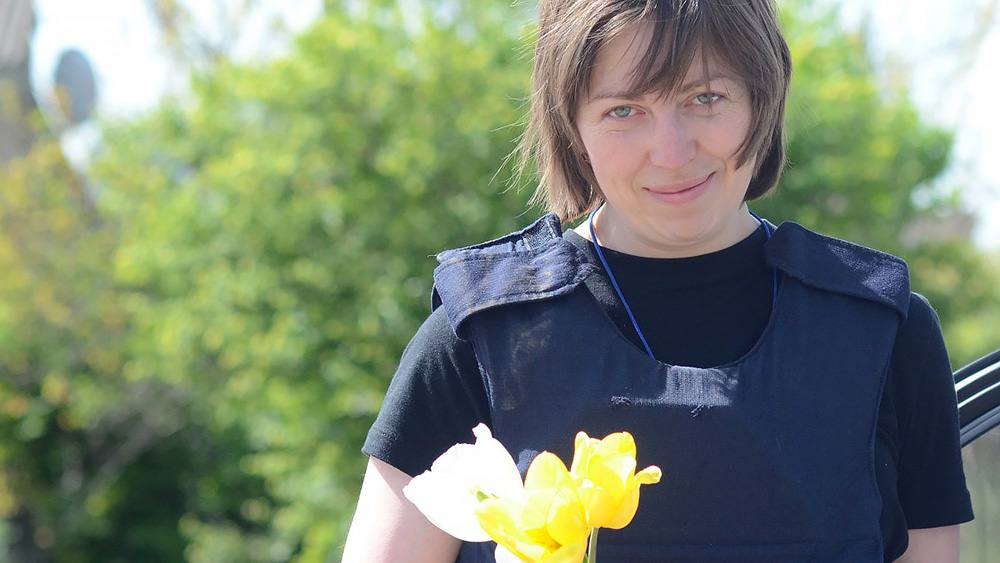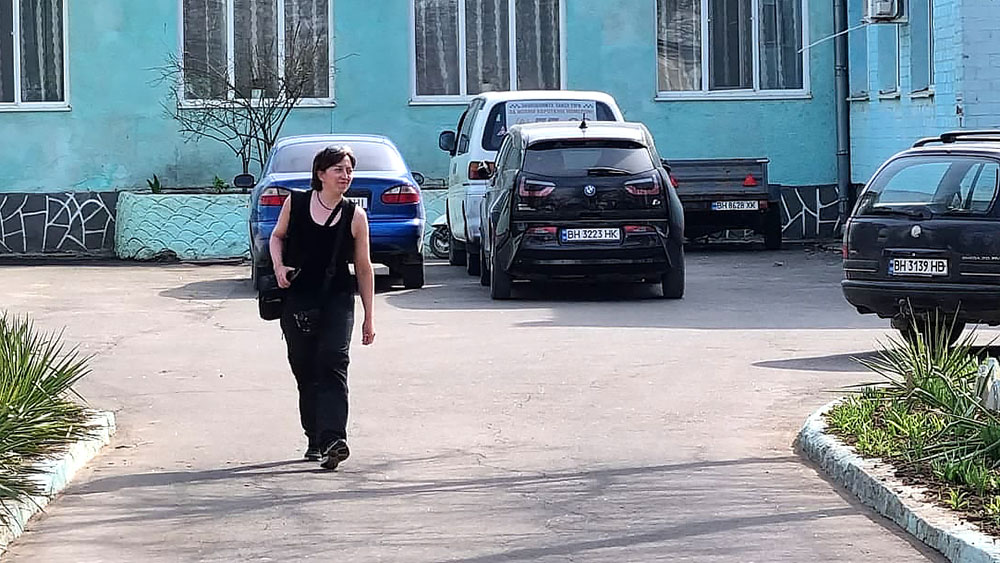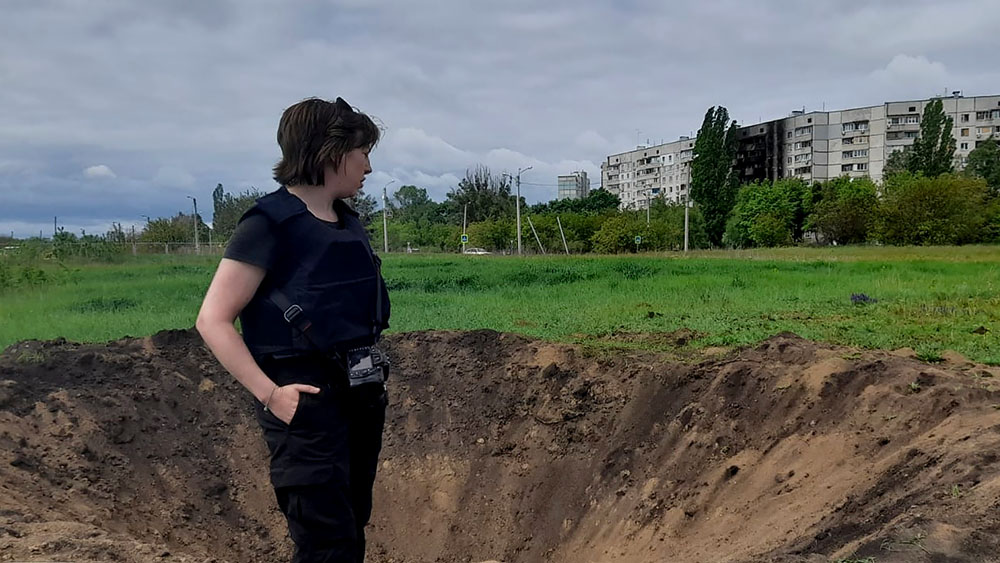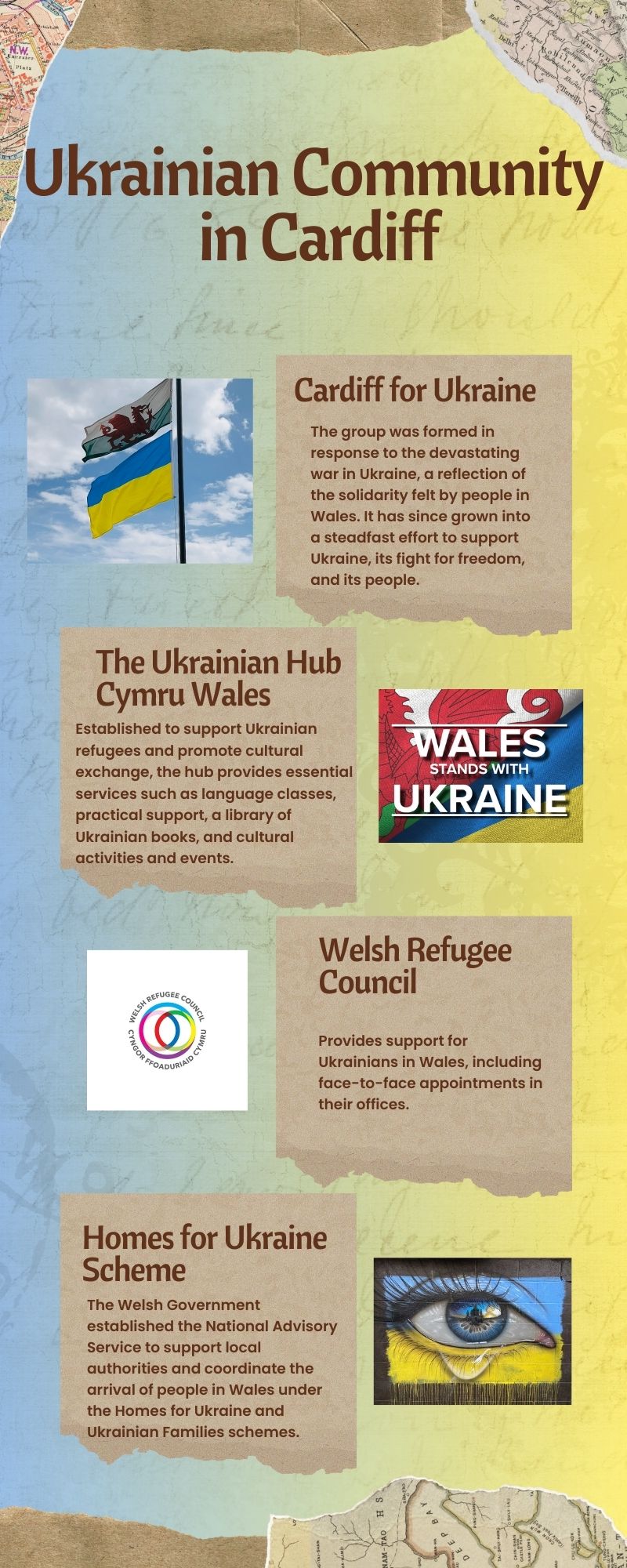A Scottish journalist shares her book and experiences on the Ukraine war in Cardiff. What has time in Ukraine taught this reporter about the war?

No one expected war to break out until the tanks crossed the border. In the first few days of the conflict, a large number of Ukrainian refugees headed to the border. Russia’s sudden attack triggered a refugee crisis in Ukraine. Meanwhile, many international journalists went to the border to cover the disaster, including Scottish journalist Jen Stout.
Jen had always wanted to report on war, and she was curious about it. When Russia’s full-scale invasion of Ukraine began, Jen was in Moscow. A few days later, without hesitation, she went to the border region to cover the refugee crisis caused by the war.
“I didn’t want to go home. I thought I would at least make my way to the border to cover the refugee crisis, but realistically, I was always going to cover the war. I suppose I was curious, because when you write about humans and society, you naturally become curious about war. It’s where you see the most extreme examples of human behaviour, both good and bad,” says Jen.
Jen wrote a book called Night Train to Odessa based on her stories and experiences in Ukraine. She visited the Waterstones bookstore in Cardiff and shared her insights on the book and her understanding of the war with the readers.
Her book contains many real stories about the war. She believes one of them, the story of a desperate mother searching for her son, often resonates with readers.

Ukrainian poet Volodymyr Vakulenko was taken from his home by Russian soldiers and disappeared. His mother spent months searching for him, but eventually, she was informed that her son’s body had been found and identified.
“The story of the poet disappearing during the Russian occupation is one of the stories in my book that often resonates with readers. It is a heartbreaking story and a great injustice,” says Jen.
Jen’s motivation for writing this book was to record the stories of the people she met in Ukraine. Some of these stories were ones she had already reported on, but she wanted to share the details of the stories she discovered in this country. She also wanted to show readers the landscapes of Ukraine.
“I wanted to tell all these stories of the people that I met, some of them are based on the reporting that I did already, but there’s always so much more detail that you want to put in. I also wanted to explain some of the history and context of the war and describe the beauty of Ukrainian landscapes and cities,” says Jen.
Since Russia’s full-scale invasion of Ukraine, the war has lasted for over three years. According to a report from Ukraine News, on March 24, the Ukrainian General Staff stated that 165 combat clashes occurred along the front lines, with Russia intensifying its attacks. The war continues, but the lives of Ukrainians also go on, marked by a sense of order and mutual support.
The war has not caused Ukrainians living in the conflict zones to fall into panic and disorder. They are making efforts to carry on with their daily lives as if the war had not broken out.

“I learned that people, in any situation, will try to find some sense of normality, even when it seems impossible. People will go back home even when it’s not safe, and they’ll dig in their gardens in the spring, even if half of it is a bomb crater. They try to create a bit of normal life in any situation. I think people need that to continue,” says Jen. “If we were in their situation, we would do the same. While there might be the threat of a bomb falling, but you still have to go to work, and your kids still have to go to school.”
During her time reporting in Ukraine, Jen witnessed much kindness from Ukrainians, even as they were living through the war. There, she received a lot of kindness and hospitality that she had not expected, which became an important part of her experience in Ukraine.
“I was really struck by many examples of kindness that people showed me. Even though I’m the reporter and they are the ones suffering in the war, they would often be concerned for my safety and well-being, especially older ladies who would ask, are you eating enough or are you looking after yourself,” says Jen.
Ukrainians maintain their hope through kindness and mutual support in their daily lives. They have not lost their reason to live despite the war. They have built underground schools for their children, and in frontline cities, people have also created underground shelters. Through these essential routines, life in Ukraine continues.
“People are living normal lives, and not all parts of Ukraine are in ruins. They maintain hope through society, unity, helping each other, and coming together,” says Jen.
Jen believes that Ukraine has a strong civic society, with many volunteer organizations formed. These networks of mutual support helped Ukraine withstand the challenges of the war and allowed people to help each other during the conflict.
“When Russia first attacked in 2014, these networks of volunteers were extremely important for getting supplies to the army and helping civilians. These networks were crucial to Ukraine’s survival during the last three or four years of full-scale war,” says Jen.

Although most Ukrainians remain in their country and persist with their lives during the war, many Ukrainian refugees have also arrived in the UK and settled there. According to the report from the House of Commons Library on March 5, the UK has received around 219,000 Ukrainian refugees since the outbreak of the war.
“The UK communities can support the Ukrainians who have come here, and I think we have done so, which is great. People in the UK have responded well to that crisis. But we also need to pay attention and understand why Ukraine can’t simply give up. We need to realize that this is a war for Europe, not just about Ukraine and Russia,” says Jen.
The UK is a country far from the front lines of the war between Russia and Ukraine, and Cardiff is a city where peace remains. However, Jen believes that people in the UK should not assume the war is only between Ukraine and Russia and that they do not need to be concerned. “Things can change very quickly. I don’t think we should assume that we are safe, because there is a war in Europe now,” says Jen.
“I don’t know what would happen if there was a war here. I hope that we would respond with the same dignity and bravery as the Ukrainians have. They are a great example of unity, showing how society can come together. What they’ve done is incredible,” says Jen.
